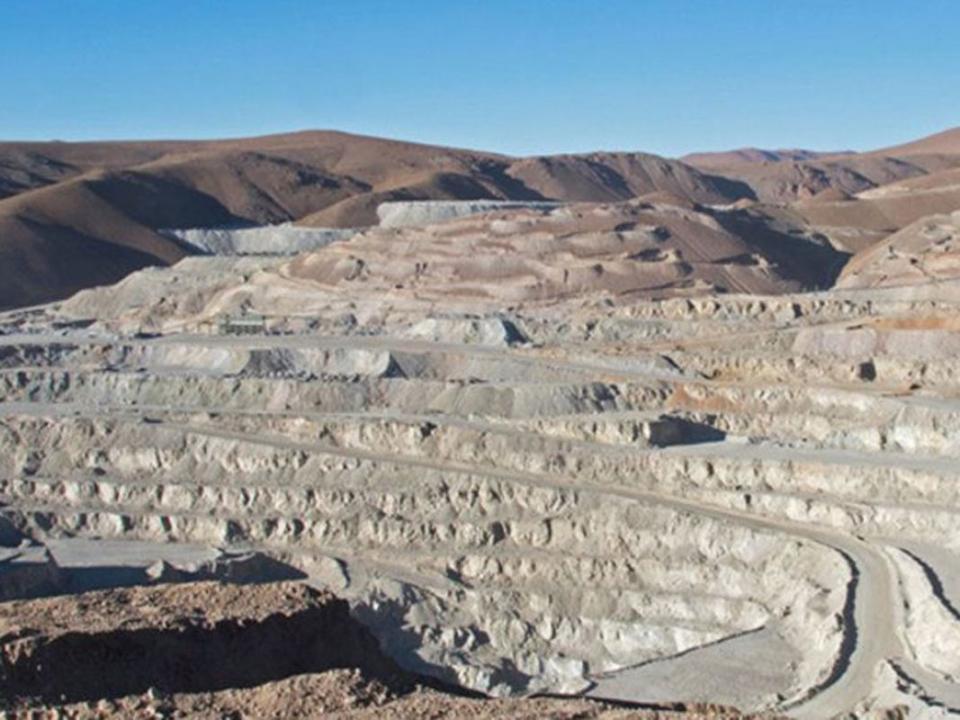Teck lowers outlook at biggest copper project as it eyes shift away from coal

Teck Resources Ltd. lowered its annual production guidance for copper this year due to delays in construction and commissioning at its most significant copper property, the Quebrada Blanca 2 (QB2) project in Chile.
The Vancouver-based company now expects to produce about 80,000 to 100,000 tonnes of copper from QB2 as opposed to the previously announced 150,000 to 180,000 tonnes. As a result, its overall guidance for copper has been cut to 330,000 to 375,000 tonnes from 390,000 to 445,000 tonnes.
But chief executive Jonathan Price said in a statement that Teck continues to “explore a range of options to realize the full potential” of its metals business and to grow its copper pipeline. The statement added that the company expects QB2 to be operating at full production rates by the end of 2023.
Canada’s largest diversified miner has in recent years been looking to boost its copper production and lessen its dependence on steelmaking coal, which it still depends upon for most of its revenue and profit.
Copper is expected to play a key role in the shift away from fossil fuels in the future given it is essential for most electricity-related infrastructure. For example, it is used in wind turbines, solar photovoltaic panel wiring and to transfer electricity.
Earlier this year, Teck attempted to divide itself into two public companies, one that would solely focus on its metals business, which includes zinc and copper, while the other would handle its coal business. However, Teck had to take a step back when Swiss-based mining giant Glencore PLC tried to take it over.
Currently, Teck is in talks with a number of companies that have expressed interest in its steelmaking coal business.
Price didn’t provide an update on Teck’s plans for its coal mines, but said the company was “pleased with the progress” it has made so far.
“We are not sitting on our hands here. We are taking a very active and diligent approach to move this forward as quickly as we can,” he said. “There is far more to it than just valuation … there is the allocation of risk and there is the long-term implication for the business beyond the transaction, all of which we have to be cognizant of.”
Overall, Teck’s revenue for the quarter that ended on June 30 declined to $3.5 billion from $5.3 billion a year ago. Its gross profit decreased to $1.4 billion from $3.1 billion a year ago.
The company attributed the decrease to a fall in commodity prices, which were at “historically high” levels last year.
“In addition to the impact of lower commodity prices, our profitability also decreased due to lower copper sales volumes, and higher unit costs relating to ongoing inflationary pressures,” the company said in a statement.
Despite its focus on copper, Teck continues to depend heavily upon steelmaking coal for its revenue. The coal unit contributed $2.2 billion in revenue, while its copper and zinc units chipped in $733 million and $532 million, respectively.
Steelmaking coal production for the quarter was nine per cent higher than a year ago at 5.8 million tonnes, mainly due to improved mining productivity, the company said.
Teck said diesel and other fuel costs have declined compared to last year, but it continues to face inflationary pressures when it comes to acquiring mining equipment, labour and contractors.
Bank of Nova Scotia analyst Orest Wowkodaw said in a research note on July 27 that Teck’s results were modestly negative “given the deeper than anticipated guidance cut at QB2.”
• Email: nkarim@postmedia.com | Twitter: naimonthefield

 Yahoo Finance
Yahoo Finance 